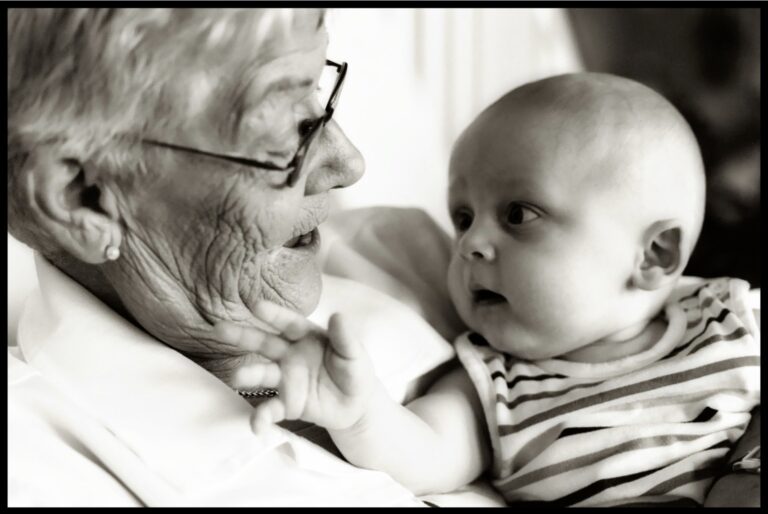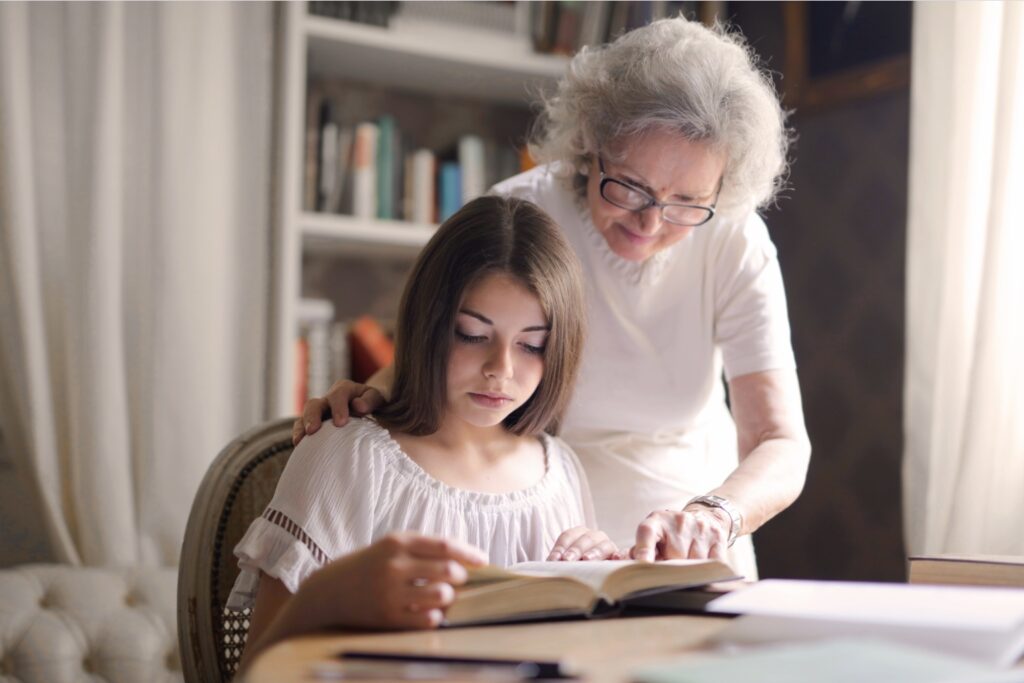
There is a stark difference in the way a 25 year old and a 75 year old are dealing with lockdowns. The intrinsic difference is in their upbringing. Parents aren’t designed to raise a child alone. Mothers have always operated in teams since the beginning of time till about 20 years ago.
The upbringing of a child is a communal effort. We live in an interdependent world. What our children hear, see, feel and learn will affect the way they turn out to be. Even in the animal kingdom, a pack or a pride rear a cub.
Children need nurturing and positive guidance; this cannot come only from parents. A parent cannot be with their child everywhere, all the time. Children are learning and developing everyday and every situation is a teaching & learning opportunity. Grandparents have more experience in correcting a child in a loving way. Children are more likely to be conscientious about their behaviour, interactions and the language they use when elders are around.
Today’s youth are brought up by two brand new parents who had no idea what they were doing, living on their own, juggling careers and raising a baby alone. Learning by trial and error or from google. Motherhood is the toughest job on the planet. Raising a baby is hard. It’s hard on the body, hard on emotions, really hard on marriage.
Without the support of an extended family, single mothers or young couples are taking on this enormous responsibility alone. This is adversely impacting them, their mental health, their kids, their marriage & their relationships. Money & independence has replaced family and community.
Parenting is a huge investment, one that is much bigger than what any individual set of parents are capable of providing on their own. Anthropologists estimate that it takes 13 million calories to raise a child from birth to the point of nutritional self-sufficiency. That is humanly impossible from one set of parents or worse a single parent? Families are increasingly isolated and cut off from one another. The father is back at work in a week and the mother is back at work in a month. A child today is largely reared by a baby sitter.
Children depend on their parents and the elders around them who make decisions every day that affect their well-being. Parenthood changes our lives forever, it redefines every aspect of life-marriage, work, relationships with family & friends. Children will thrive only if their families thrive & that takes the support and care of an entire community.
In China there is a tradition called “sitting month” or zuo yuezi for women who have just given birth. The mother rests, sleeps and restores herself while family members come and care for the newborn baby. Japan and India also give women 3 weeks to rest and recover while she bonds with the baby and her uterus heals. In the Congo women are confined for 3 months while relatives bring food and care for the needs of the new mother.
Multiple hands touching, nurturing and nourishing a baby from day one plays a crucial role in its development and socialisation.
Behavioural issues in today’s youth is a result of them being raised in a broken home, by a single parent or working parents who were never around. You need a lot of different influences to bring up a well rounded child, lots of extended family and friends who are constantly loving, training, correcting.
Socialization is a learning process that begins shortly after birth. Early childhood is a period of the most intense and crucial socialization. It is then that you acquire language, learn fundamentals of your culture, values, beliefs. It is also when much of your personality takes shape.
Humans are driven towards safety. We have a biological need to be both physically and socially safe. People thrive in relationships and environments when they feel safe and nurturing. It is our basic most fundamental need. Child abuse, kidnapping and other petty crimes have made parents paranoid so they keep their kids locked up inside, afraid for their safety or just so tired after a long day of endless homework/tuitions that they have no energy to play outside. There is also a problem that there is nowhere to play. Many of us don’t even know who our next door neighbors are, we live such separate, isolated lives.

Technology has connected the entire world but we are more disconnected and lonely than ever. We don’t allow children to form close ties with people outside their immediate family and from different generations.
Core Character, moral fiber, an inner compass are vital for a child to evolve into an intelligent, socially responsible citizen. What will matter when our children grow up, is not what they achieved but how they treat others and what they think of themselves. If we want them to build character, confidence, strength and resilience, we need to allow them face adversity and experience life, they will emerge stronger on the other side. It’s hard to watch our children falter, but sometimes we have to allow them to fail, instead of being overtly protective.
Let’s look at the behaviour of youth Vs elderly during this Lockdown. Youth are not sensitive to their elderly neighbours or those with special needs/disabilities, they don’t want to help anyone in society or even at home. Despite lockdowns they go out because they claim it’s important for their ‘mental health’ to go out of the house everyday. They spend a large part of their day on social media criticising the Government, bureaucracy and judiciary like they are ‘experts’ and the rest of the day they are watching movies. They have clearly not been brought up by a community, they don’t know emotions like cooperation, belonging or compassion.
Elderly people stay home, offer to share whatever provisions they have with their neighbours, call everyone they know and enquire about their well-being and needs. They are not self centered and selfish, they have a strong sense of community. All day they think and discuss what they can do to help, how to help, whom to help, where to help. They always put others before themselves.
The choices we make today, about how we raise our children and how we support each other will determine how our nation will face challenges of this century.